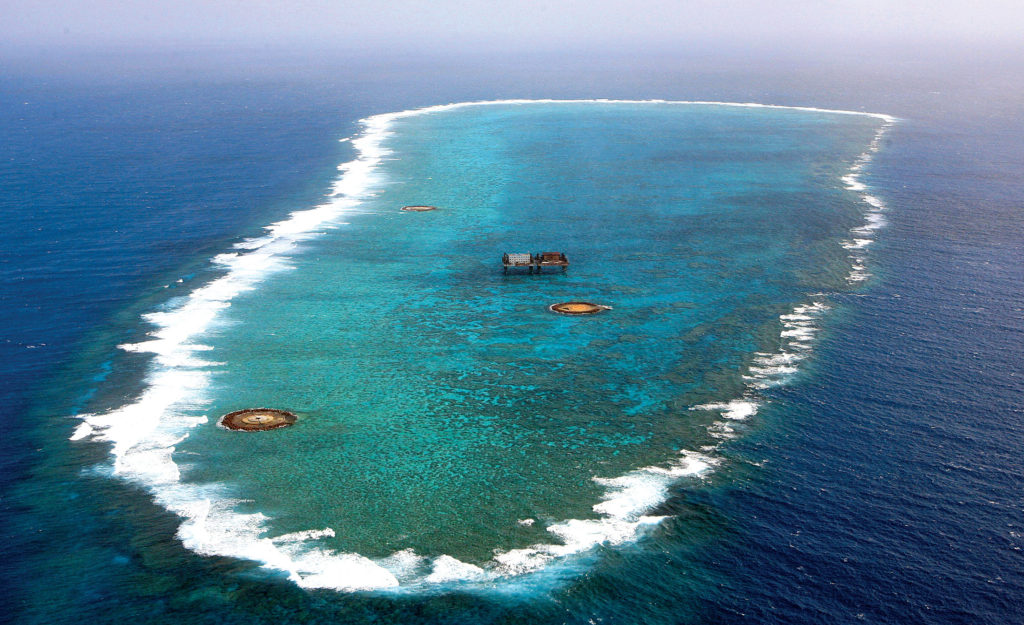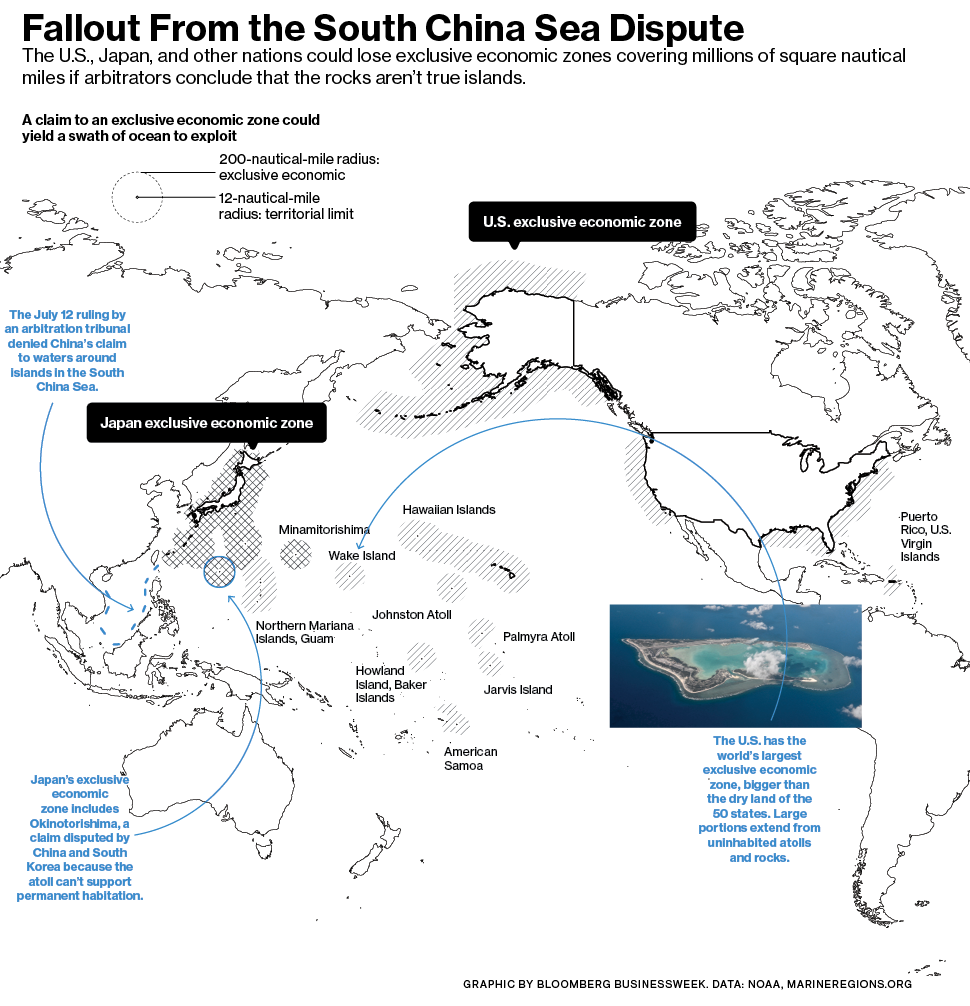Is It an Island Or a Rock? Ruling Could Cost U.S. a Huge Swath of Ocean
IN FOCUS, 1 Aug 2016
Peter Coy | Bloomberg – TRANSCEND Media Service
A Chinese dispute has a ripple effect on exclusive economic zones around the world.
28 Jul 2016 – The U.S. and other coastal nations could lose millions of square nautical miles of ocean that are now in their exclusive economic zones. The loss would be an indirect result of an arbitration panel’s ruling on China’s dispute with the Philippines in the South China Sea.
Largely overlooked in the tribunal’s July 12 decision was a strict interpretation of which dry land is entitled to a 200-nautical-mile exclusive economic zone—the surrounding ocean where a nation has sole rights to fish, drill for oil, and search for minerals. While not a legal precedent, the 479-page ruling could influence other judges and arbitrators because of its rigorous argument. “These arbitrators knew that this case was being watched around the world,” says Paul Reichler, a partner in law firm Foley Hoag and lead counsel for the Philippines. “They wanted it to be as close to perfect as possible.”
The United Nations Convention on the Law of the Sea doesn’t allow nations to declare exclusive economic zones around “rocks which cannot sustain human habitation or economic life of their own.” What that’s meant has never been clear. Many countries, including the U.S. and Japan, have claimed exclusive economic zones around tiny atolls and outcroppings of rock. The U.S. hasn’t ratified the treaty because of opposition from congressional Republicans, who fear it would open the U.S. to lawsuits. But the U.S. “scrupulously” follows the treaty’s provisions anyway, says James Kraska, a law professor at the U.S. Naval War College. Push could come to shove if another nation seeks to fish or drill or mine in waters surrounding some dinky U.S. rock.
The tribunal concluded that having people live on an island doesn’t prove habitability if food and water comes from elsewhere. Countries will “now have a greatly reduced incentive” to fight over ownership of rocks if they no longer have exclusive zones, Kraska says. On the minus side, fisheries might be depleted quickly if countries lose the ability to curb fishing in these zones.
The bottom line: An arbitration panel’s definition of what an island is could undermine nations’ claims of economic zones around rock outcroppings.
Go to Original – bloomberg.com
DISCLAIMER: The statements, views and opinions expressed in pieces republished here are solely those of the authors and do not necessarily represent those of TMS. In accordance with title 17 U.S.C. section 107, this material is distributed without profit to those who have expressed a prior interest in receiving the included information for research and educational purposes. TMS has no affiliation whatsoever with the originator of this article nor is TMS endorsed or sponsored by the originator. “GO TO ORIGINAL” links are provided as a convenience to our readers and allow for verification of authenticity. However, as originating pages are often updated by their originating host sites, the versions posted may not match the versions our readers view when clicking the “GO TO ORIGINAL” links. This site contains copyrighted material the use of which has not always been specifically authorized by the copyright owner. We are making such material available in our efforts to advance understanding of environmental, political, human rights, economic, democracy, scientific, and social justice issues, etc. We believe this constitutes a ‘fair use’ of any such copyrighted material as provided for in section 107 of the US Copyright Law. In accordance with Title 17 U.S.C. Section 107, the material on this site is distributed without profit to those who have expressed a prior interest in receiving the included information for research and educational purposes. For more information go to: http://www.law.cornell.edu/uscode/17/107.shtml. If you wish to use copyrighted material from this site for purposes of your own that go beyond ‘fair use’, you must obtain permission from the copyright owner.

